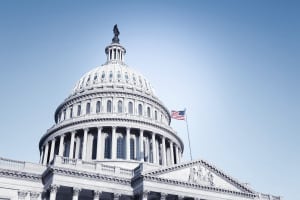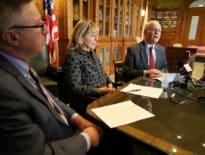President Joe Biden is pursuing “multiple paths forward” as he looks to muscle his big infrastructure package through Congress – dialing up lawmakers from both parties in search of a bipartisan deal while imploring Democrats to be ready to go it alone if necessary.
It’s an approach that shows the political perils ahead for the White House and anxious Democrats eager to make gains on their agenda, but also the potential routes to a $1 trillion-plus investment package that would be a signature accomplishment for the president and his party in power.
In one fell swoop this week, Biden cut off talks with a core group of Republican senators when it became clear there was no bridging the divide between their differing views on the size of an infrastructure investment; started new talks with a bipartisan group of 10 senators working on a deal; and welcomed a $1.2 trillion bipartisan effort from a group in the House.
At the same time, before leaving for his first overseas trip to Europe, Biden instructed Democratic leaders in Congress to prepare the groundwork to pass some or all of the ambitious package on their own if there is no deal to be made with Republican lawmakers this summer.
“His view is that there are multiple paths forward,” said White House press secretary Jen Psaki.
The legislative road ahead promises long days and nights of talks, as lawmakers and the administration grind out the details of what would be the most sweeping domestic infrastructure investment in years. It showcases an almost forgotten skill in Washington, the art of negotiation, even as the prospects for a final deal remain seriously in doubt.
The current thinking is that it could very well take all approaches to secure a deal: Perhaps Biden can reach a bipartisan accord on the more traditional roads and bridges projects, and then he will need to depend on a party-line vote for the child care centers, veterans hospitals and family-friendly tax policies he wants in the face of Republican resistance.
The mass transit funding embedded in the president’s infrastructure proposals has sparked significant interest among local transportation experts and advocates for its potential ability to pay for several transformative projects that could create new development opportunities, including the Allston Interstate 90 interchange rebuild, which will free up dozens of acres in the growing biotech hot spot, and parts of an effort to transform the state’s commuter rail network into something more closely resembling subway service.







